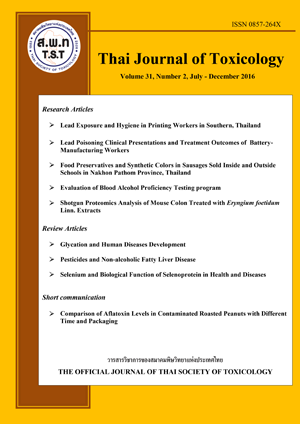Glycation and Human Diseases Development
Main Article Content
Abstract
Glycation is the covalent bonding of a protein or lipid molecule with a reducing sugar molecule, such as glucose or fructose without the controlling action of an enzyme. The final products of this non-enzymatic reaction are advanced glycation end products (AGEs). In general, AGEs formation takes place under normal physiological conditions but is accelerated in hyperglycemia. The presence and accumulation of AGEs in different cell types affect extracellular and intracellular structure and function.AGEs have been etiologically implicated in diabetes- and age-related diseases. Several approaches have been explored to reduce AGEs such as using of synthetic compounds. Phenolic containing dietary plants have been effectively used for inhibition of glycation formation. Inhibition of in vivo AGEs formation could be prevented by reduced sugar consumption. In addition, the formation of AGEs during cooking could be prevented by cooking with moist heat as boiling or streaming, using shorter cooking times, cooking at lower temperatures, and by the use of acidic ingredients such as lemon juice or vinegar.


